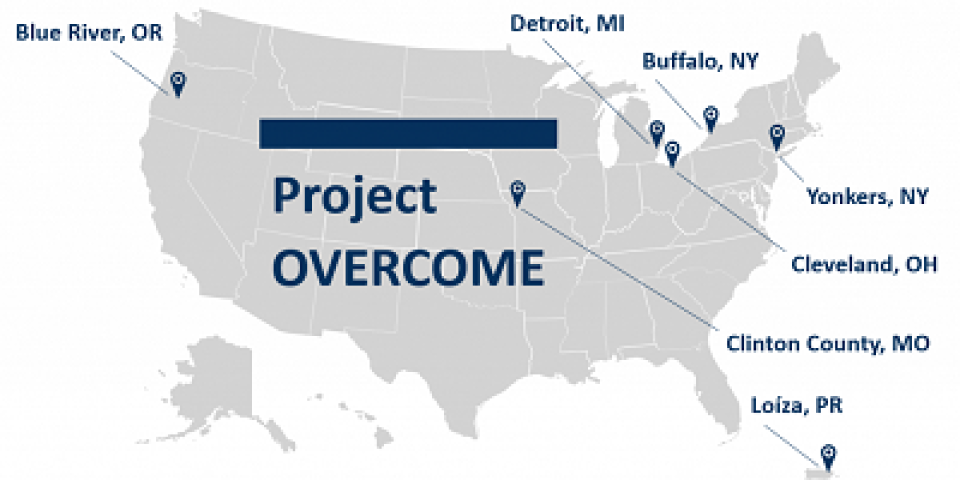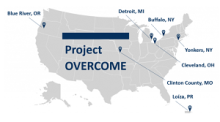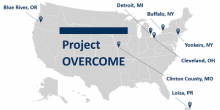
Fast, affordable Internet access for all.

Last fall we wrote about the launch of Project OVERCOME, a grant program "designed to connect the unconnected through novel broadband technology solutions" by soliciting applications from community-based organizations and ultimately award $2.7 million funded through the National Science Foundation and Schmidt Futures (the philanthropic initiative founded by Eric and Wendy Schmidt).
Project OVERCOME seeks to "[C]ollect data to measure the technical and social impacts of different connectivity strategies [in order to] discover patterns of success that can be repeated on a larger scale across the country, and to catalog the distinctions that emerge based on variations in the communities served."
Each of the winning projects will serve as an incubator of sorts, deploying proofs of concept with an array of wired and wireless technologies to connect households in
Winning applications were recently announced for projects in Blue River, Oregon; Detroit, Michigan; Buffalo, New York; Yonkers, New York; Cleveland, Ohio; Clinton County, Missouri; and Loiza, Puerto Rico.

See a snapshot of the winners below:
Lead Organization: DigitalC – Cleveland, Ohio
Project: Internet service to an underserved and historically Black neighborhood delivered through a combination of fiber and millimeter wave technologies, with local technical support and device purchase assistance
Lead Organization: Missouri University of Science and Technology – Clinton County, Missouri
Project: An RF over Fiber (RFoF) deployment using intelligent routing and multiple last-mile wireless technologies to serve a rural community
Lead Organization: The Westchester County Association – Yonkers, New York
Project: A CBRS network in a digital opportunity zone supported by exceptional partnerships to ensure youth involvement and digital equity
Lead Organization: Onward Eugene – Blue River, Oregon
Project: A resilient wireless link to rural McKenzie Valley combined with new fiber, a pilot CBRS education network, and new incentives to attract further private broadband investment
Lead Organization: Allied Media Projects – Detroit, Michigan
Project: A combination of fiber and fixed wireless infrastructure deployed and supported by a network of Digital Stewards employed at a neighborhood anchor institution
Lead Organization: Libraries Without Borders – Loiza, Puerto Rico
Project: A wireless mesh network deployed to three community centers providing digital skills training and health literacy information to low-income residents in underserved neighborhoods
Lead Organization: University at Buffalo – Buffalo, New York
Project: Internet service delivered via CBRS to the historic and under-resourced Fruit Belt neighborhood near the Buffalo Niagara Medical Campus
“We were immensely gratified by the quality of proposals we received,” said Joe Kochan, CEO for US Ignite at the announcement. “It’s a challenge to combine creative technology solutions with strong partnership and community engagement strategies. Yet we found proposers exceeded our expectations in both criteria, and we are delighted to announce not only a stellar lineup of winning projects, but also one that reflects a strong mix of environments, demographics, housing types, and geographic regions. We couldn’t be more pleased with the results and what comes next for these communities.”
Winning projects will deploy this year and immediately begin collecting data on their impact in communites, with the intent to show successful models that can be replicated around the country.
See the full list with more details here.


